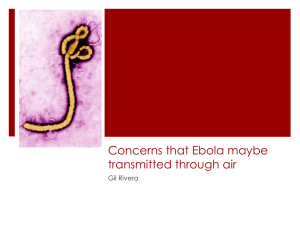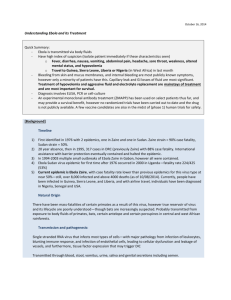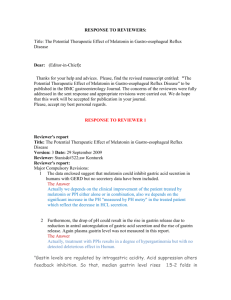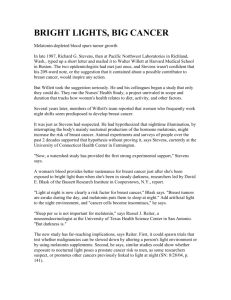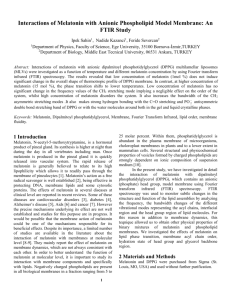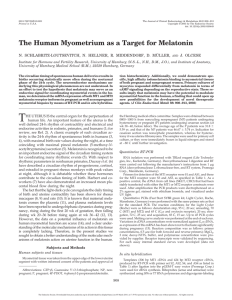a gene ontology
advertisement
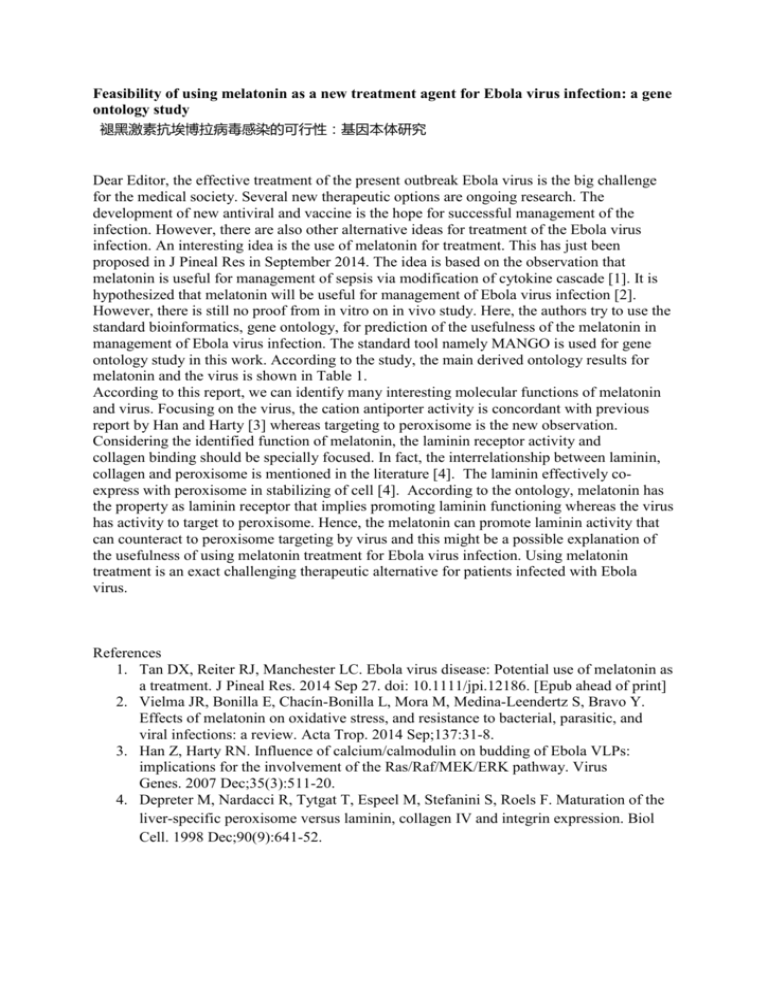
Feasibility of using melatonin as a new treatment agent for Ebola virus infection: a gene ontology study 褪黑激素抗埃博拉病毒感染的可行性:基因本体研究 Dear Editor, the effective treatment of the present outbreak Ebola virus is the big challenge for the medical society. Several new therapeutic options are ongoing research. The development of new antiviral and vaccine is the hope for successful management of the infection. However, there are also other alternative ideas for treatment of the Ebola virus infection. An interesting idea is the use of melatonin for treatment. This has just been proposed in J Pineal Res in September 2014. The idea is based on the observation that melatonin is useful for management of sepsis via modification of cytokine cascade [1]. It is hypothesized that melatonin will be useful for management of Ebola virus infection [2]. However, there is still no proof from in vitro on in vivo study. Here, the authors try to use the standard bioinformatics, gene ontology, for prediction of the usefulness of the melatonin in management of Ebola virus infection. The standard tool namely MANGO is used for gene ontology study in this work. According to the study, the main derived ontology results for melatonin and the virus is shown in Table 1. According to this report, we can identify many interesting molecular functions of melatonin and virus. Focusing on the virus, the cation antiporter activity is concordant with previous report by Han and Harty [3] whereas targeting to peroxisome is the new observation. Considering the identified function of melatonin, the laminin receptor activity and collagen binding should be specially focused. In fact, the interrelationship between laminin, collagen and peroxisome is mentioned in the literature [4]. The laminin effectively coexpress with peroxisome in stabilizing of cell [4]. According to the ontology, melatonin has the property as laminin receptor that implies promoting laminin functioning whereas the virus has activity to target to peroxisome. Hence, the melatonin can promote laminin activity that can counteract to peroxisome targeting by virus and this might be a possible explanation of the usefulness of using melatonin treatment for Ebola virus infection. Using melatonin treatment is an exact challenging therapeutic alternative for patients infected with Ebola virus. References 1. Tan DX, Reiter RJ, Manchester LC. Ebola virus disease: Potential use of melatonin as a treatment. J Pineal Res. 2014 Sep 27. doi: 10.1111/jpi.12186. [Epub ahead of print] 2. Vielma JR, Bonilla E, Chacín-Bonilla L, Mora M, Medina-Leendertz S, Bravo Y. Effects of melatonin on oxidative stress, and resistance to bacterial, parasitic, and viral infections: a review. Acta Trop. 2014 Sep;137:31-8. 3. Han Z, Harty RN. Influence of calcium/calmodulin on budding of Ebola VLPs: implications for the involvement of the Ras/Raf/MEK/ERK pathway. Virus Genes. 2007 Dec;35(3):511-20. 4. Depreter M, Nardacci R, Tytgat T, Espeel M, Stefanini S, Roels F. Maturation of the liver-specific peroxisome versus laminin, collagen IV and integrin expression. Biol Cell. 1998 Dec;90(9):641-52. Table 1. The main derived ontology results for melatonin and the virus. Gene Ontology result Melatonin Molecular function term 0006665 0005518 0009636 Ebola virus 0006625 0015491 Description laminin receptor activity collagen binding response to toxin protein targeting to peroxisome cation antiporter activity

